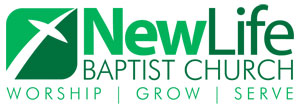Topic: Confession of Sin (Ezra 9)
Do we see the severity of sin in the circumstances around us? How does it make you feel? Are we numbed to it? Could it be that we don’t hate sin like we think we do?
The danger of compromise is this: we can be going about our daily routines, just like the Israelites in Ezra’s day, without realizing anything is wrong until a man like Ezra steps in. When Ezra grieved, the people noticed that something was amiss.
Ezra 9:4 says, “Then everyone who trembled at the words of the God of Israel on account of the unfaithfulness of the exiles gathered to me, and I sat appalled until the evening offering.”
Ezra went on to explain the words of God to them and they trembled. They trembled because “of this unfaithfulness of the exiles.” Ezra then came to the house of God at the evening sacrifice, fell on his knees with his hands spread out to God and prayed a prayer of confession.
- He was “too ashamed and disgraced” to lift up his face to God.
- His first response was to admit sin, not on behalf of his people but with his people.
Ezra could have reacted like any Pharisee would in Jesus’ time—condemning the sin of the people in a self-righteous way. And you can’t fault him because he did not sin like them and he kept the Law. Ezra prayed like the tax-collector, who stood at a distance and would not even look up to heaven, saying, “God, have mercy on us, sinners!” Jesus responded (Luke 18:14), “I tell you that this man, rather than the other, went home justified before God. For all those who exalt themselves will be humbled, and those who humble themselves will be exalted.”
Ezra 10:1 says, “Now while Ezra was praying and making confession, weeping and prostrating himself before the house of God, a very large assembly, men, women and children, gathered to him from Israel; for the people wept bitterly.” God started to work even while he was still praying, and stirred the hearts of the people. This was the move of God because only God could have done this.
This reminds me of the words of E. M. Bounds in his book Power through Prayer:
“What the Church needs today is not more machinery or better, not new organizations or more and novel methods, but men whom the Holy Spirit can use — men of prayer, men mighty in prayer. The Holy Spirit does not flow through methods, but through men. He does not come on machinery, but on men. He does not anoint plans, but men — men of prayer.”
Here is what we can learn from Ezra:
- Acknowledge the absolute righteousness of God in all His dealings with us. The fault is with man, not with God.
- Submit to God’s righteous judgment against sin, without complaint or excuse. We don’t blame the circumstances, the pagan neighbors around us or whatever. When God punishes, He is always just and right.
- Agree with God concerning His view of sin. Ezra says, “It’s our sin, our evil deeds, our great guilt.” Don’t hide it, ignore it or minimize it. Call it what it is.
- Trust in the forgiving grace of God.
See you Sunday!
Dr. Scott Kallem

